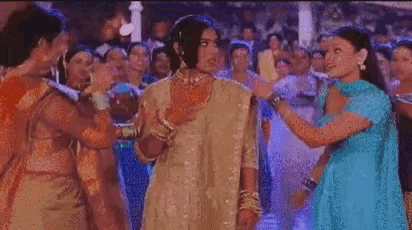Hello ji,
It is the Monday after Diwali as I am writing this.
Men, I hope you had a great festive weekend.
I hope you got to see loved ones.
I hope your house was lit up with pretty lights and lamps.
I hope the house was sparkling clean and there was a colourful rangoli gracing your doorstep.
I hope the food was delicious, and the sweets were sweeter than ever.
I hope you won at teen patti and I hope you lost some of the depressive weight left on our collective consciousness by the last two Diwalis.
(And if you celebrated in NCR, I hope no part of the poison air I am currently breathing arose from your home.)
Women, if the men in your family had all of the above, then let me guess how your festive weekend went:
You spent most of the days in the last week cleaning the house from toe to tip.
You were vacuuming cobwebs, mopping under beds, and changing the curtains.
If you are able to afford hired help, you were still supervising your cleaning staff and keeping them honest everytime they tried to skip a corner.
When your loved ones came a-knocking, you spent most of the time in the kitchen, joined by other female loved ones as the male loved ones got first dibs on a delicious you-cooked meal.
While the men laughed uproariously or lamented their fate in the latest round of teen patti, you were the one plying them with drinks and refreshments because looking at cards is such strenuous cardio.
And you tell everyone - and genuinely believe - that you would not have Diwali any other way.
"We are not foreigners"
The day before Diwali is celebrated as Narak Chaturdashi in Jhankaar's family. It is a major occasion, which culminates in a Lakshmi Poojan.
“Every year, on this day, my Aunt wakes up at 4am, takes a bath, and starts preparing an elaborate traditional spread which is expected on this festival. Since it needs to be first offered as prasad, she cannot even taste it to check the sugar and salt, let alone sneak a few bites. At 6am she starts weaving flowers into garlands instead of buying those sold by vendors - because she thinks this is what she should do to make the festival feel authentic.”
By 7am, Jhankaar’s Aunt has washed all the God idols and set everything in place for her husband to wake up and do a ceremonial pooja that only men are allowed to do in their culture.
“My uncle wakes up at 8am, demands that his wife abandon the house cleaning she is doing to make tea for him. He then goes for a bath at 9am. Tradition actually demands that the woman give the man a deep oil massage and a luxurious ubtan bath at this point, but since we are a 'modern family', he graciously excuses her from this task and only insists on the final step - where she does his aarti (worships him with a ceremonial lamp). When she tries to wake up the kids, he chides her for nagging everyone so early on a festival morning.”
“While performing the manly pooja, he voices complaints against my Aunt - like how she did not remove the matchsticks from the drawer and keep them ready for him to light the lamp. When the family finally sits down for breakfast at 11am - by which point my Aunt has been up and working nonstop without a morsel of food for 7 hours straight - he comments that she prepared one dish less than last year and comments how my Aunt just isn't devout enough to uphold Indian culture and traditions properly.”
It might have been 7 straight hours of manual labour on an empty stomach for the woman of the house, but the festivities are only just beginning.
“The house is typically full of guests coming and going all day long. Between their visits, the men and kids take two naps. My Aunt uses this time to clear dirty dishes left by the guests, prepare for the next set of guests, and put out lamps and lights for the evening decoration.”
“In the evening, her daughter demands that my Aunt spend an hour draping her saree and doing her makeup. Her son frets on his kurta and grunts at his mother about how his hair is not looking right. My Aunt, of course, has no time to dress up the way she would like to because there is task after task that she needs to attend to.”
The kids do not help beyond maybe fluffing a cushion or two, and the men don't even do that. Of course, Jhankaar’s Aunt would not have it any other way.
“The sad truth is, if any man genuinely tried to help her with her work, my Aunt would be positively mortified. She should jump up and snatch the work from him, complaining, 'What will people say?' We tried celebrating once with my dad and brother just ordering in pizza and asking the ladies to take it easy while they served everyone. My Aunt kept interfering, trying to serve her brothers-in-law. Ultimately, she scolded my brother, saying, ‘We are not foreigners. This system does not work in our culture. You eat first, and only then the rest of us women will eat.’”
“The Eid of Men”
Ayesha's mother-in-law is in the kitchen the entire time during Eid.
“She fasts all the days of Ramzan. Then, before Eid, she is up on her feet the entire day and night - cooking kimami sewai, prepping the chhole, dahi bade, snacks, kebabs, and biryani - a full-on traditional Eid feast. Of course, none of this absolves her of her primary caregiving activities towards my father-in-law who continues to demand his tea and food served to him on a platter all day.”
“Every year, she has almost 150 guests arriving and she remains busy cooking for and serving them all day. None of these visitors are her friends. Almost all are men, because rest of her women relatives are busy supervising similar ‘celebrations’ in their respective homes. If any women guests came, they would immediately rush to the kitchen to help out the hostess. An average female guest would cook for 20-25 people, while the male host would sit in the dining room and enjoy being served by her.”
Sometimes, men in Ayesha's family casually invite dozens of relatives for an alleged male-cooked feast.
“They call friends and relatives for nihari (slow-cooked meat) or bati chokha (wheat and gram flour balls, cooked with pulses and mixed with herbs and spices) on the pretext that men will cook the meal on the traditional wood oven. But even on these occasions, it will be the women who are running around, making tea, snacks, kneading aata, preparing spices, peeling garlic, ginger and onions so the men can stoke the oven and feel manly about it. At the end of the day, the men proudly lap up all the credit for the meal when all they did was light a stove.”
“After seeing all this, I have started caling Eid in our family as 'Aadmiyon ki Eid' (The Eid of Men). The person annoyed the most by this, ironically, is my mother-in-law herself."

Happy hungry-women-and-condemned-men to you too
There is a ritual called Daawat Puja that Lipi's family celebrates every Diwali.
"One year, we were celebrating it at a relative’s place, just a few months after my son was born. Dawaat puja is done by the men of the house, and till the time the ritual is complete, no one is supposed to eat. I was breastfeeding at the time, which made me constantly hungry, sleepless and tired. I was also going through post partum depression which made me even lower on energy."
"But since I was a bahu (daughter-in-law), I was expected to cook and wait for the men to eat first. The man of this particular house woke up very late that morning. He then proceeded to enjoy a leisurely morning routine, and then launched into an hour long conference call with his extended family.”
By around 2pm, Lipi collapsed due to hunger and exhaustion.
"Suddenly, everyone was very concerned. An elderly lady commented that every mard (man) in this house will be condemned to hell because by keeping me hungry they had denied food to an infant."
Would the elderly lady have made the same comment if the baby had been a girl? And if there had been no baby in the picture at all, does a woman's basic human right to sustenance mean anything, around these joyous festive times of feeding men?
A long wait
Alankrita grew up in a family where none of the traditional rituals associated with Diwali were followed. Her husband, on the other hand, grew up with all the traditional bells and whistles surrounding the festival.
"When we had our child, we had long conversations around the kind of traditions we wanted in our family. I was ambivalent to Diwali rituals but my husband said they were important to him and he would like our kid to grow up with some of these traditions. I told him I had no issue with it."
This year, their child turned four. On Diwali, their house was not decorated, there was no special spread cooked, and there was no pooja. At night, they went to their favourite restaurant and ate their favourite food.
"On our way back, I turned to him and asked how come he never followed through on his intention of passing on Diwali rituals to our kid. He just shrugged. That was the moment it suddenly dawned on me - all the rituals he grew up with were spearheaded by the women of his house. And when he said he wanted to show our child these traditions, he actually meant that I should do the heavy lifting around it."
"I think it is very ironic that most of these rituals are very sexist - like men eating first, women eating the scraps they leave, or keeping arduous fasts for the men's long life, women doing all the housework, and the men get worshipped like Gods. And yet, it is the women who take on the responsibility of perpetuating these sexist rituals - of passing them on from generation to generation and keeping them alive."
"I asked my husband if he was subconsciously just waiting for me to take the lead on this all these years. He said he probably was. I laughed and told him he might have to keep waiting for a very long time!"
“Go on strike, just for a year”
Smriti, much like Alankrita. is a non-believer in rituals, even God. And her husband, much like Alankrita's is a believer.
"After my kids were born, I thought it was important that they should have some kind of an exposure to culture. So, I would make sure I celebrated Diwali the way my mother-in-law wanted - the proper Lakshmi Puja with five sweets and five savories made by me for the family. I would kill myself every Diwali, year after year, for decades. My husband, on the other hand, would act all day like he was doing me a favour and the kids followed his lead. So by evening, everyone would have these long sulky faces. Everyone would be nicely dressed up, and a nice photograph would be taken. But I would know in my heart how little joy there was in those beautiful looking photographs."
After they grew up, Smriti's kids declared themselves atheists.
"After that, there really was no point in me carrying forward a tradition that none of us believed in and which made all of us unhappy. This year, we had a quiet Diwali where I did only the things I genuinely wanted to do - I dressed up, lit some pretty lamps, and ordered our favourite food. My husband was a little startled, but he didn't say anything.
Around seven o'clock, when he realized Smriti was serious, he asked her, 'When are we doing the puja?'
I said, 'What Pooja?'
'But today is Diwali. You are supposed to do a puja on Diwali.'
I said 'No, we're not supposed to. You never really wanted to. The kids and I are not believers. So what is the point?'
He said, 'No, no, no. How can you have Diwali without the Diwali Puja?'
I thought that was really funny, because all these years when I was killing myself to do an authentic Diwali, I would get zero support from him and he would in fact act like he was doing it for my sake. And yet, when I said 'No more Diwali', guess what? The man wanted Diwali all these years! I think every woman should go on strike, just for one year, and enjoy watching the ungrateful family all fall in line."
To the men…
I have been that ungrateful kid for most of my life - the one who sleeps and pouts most of the day on festivals while her mother slaves in the kitchen all day. The one who feels like she contributed a lot by fluffing two cushions. The one who ungratefully complains through every festival, only to realize later that when she is away from family, she misses every silly bit of it.
So this is not an indictment of every lover of sweets and lights out there. And it is definitely not an appeal to cancel «insert your favourite festival here».
But «insert your favourite festival here» is a time for family, joy, and reconnecting with loved ones, right? No one appreciates the value of this more than all of us on the planet right now who have been lucky enough to have survived the pandemic. Maybe this makes it the perfect time to take a relook at our festivities and question how we can exploit the labour of our primary caregivers more than ever and call it a celebration.
To the women…
I have also personally experienced the fortress women build around the kitchen which no man is allowed to breach. While men and kids enjoy tremendous unfair privilege around the holidays, it is the women who are the fiercest protectors of this privilege.
One can appreciate that the overwhelming intention behind this is the urge to pass on a slice of our culture and traditions to our children. But maybe it is time to pause and reflect on the fact that it is mighty hard for us to pass on anything to the next generation from the confines of the kitchen - except a perpetuation of the invisible labour of women and its continued unappreciation by the men.
So, this time of the year, I wish you and your family a very happy and joyous togetherness - both inside the kitchen and at the dining table.
Mahima
PS: Oh, also, Womaning is a Monday newsletter now.
❤️ Love Womaning? Show it by becoming a paid subscriber or getting yourself some choice Womaning merch.
🔥 If you are an aspiring writer - or even someone who just wants to make their emails shine - check out my storytelling course, which includes writing workshops and one-on-one mentoring to help you write better, write consistently, and launch your own newsletter.












This immediately reminded me of a short film called "juice" on youtube. Exactly what you have written has been amazingly shown in that!! Do watch that one.
Just shared this on Facebook because it is too universal not to! Well done